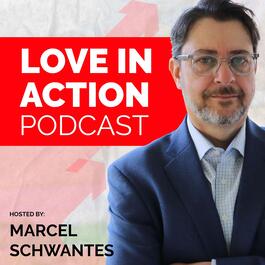
Why do some organizations thrive in collaboration, innovation, and resilience while others struggle with stagnation and silos? How can leaders build a culture that inspires risk-taking, fosters diversity, and drives ethical success? In this episode, we have invited Dr. Mary Murphy, a social psychologist, Stanford graduate, and protégé of mindset pioneer Carol Dweck. Dr. Murphy's groundbreaking research builds on Dweck's work to explore how organizations, not just individuals, adopt mindsets that profoundly influence performance, motivation, and inclusion. She introduces the concept of "Cultures of Growth" versus "Cultures of Genius" and unpacks the transformative power of creating a learning-focused organizational culture. If you're ready to revolutionize your team's dynamics and embrace a sustainable path to growth, this episode is your blueprint. Summary: Dr. Mary Murphy explains that fixed mindset cultures focus on "star performers" and collecting top talent, while growth mindset cultures believe everyone can develop and contribute with the proper support. She discusses the negative consequences of a fixed mindset or "culture of genius" environments, such as risk aversion, lack of collaboration, and ethical issues. In contrast, growth mindset cultures are more inclusive, innovative, and supportive of employee development. Dr. Murphy provides practical advice for leaders to foster a growth mindset culture. This includes understanding your and your team's mindset triggers, strategically using feedback and praise to encourage growth, and creating an environment where mistakes are seen as learning opportunities. She emphasizes the importance of equity, not just equality, in supporting the unique needs of each team member. Dr. Murphy also shares examples of strong growth mindset cultures, like Patagonia, that focus on sustainable and regenerative organizational practices. The key is continuous attention to culture to prevent regression to a fixed mindset environment. Quotes: ● "Mindset isn't just located in our mind. As I said, it is influenced by the people in the situations around us. And so the solution changes to not just get people to change their minds, but to change the culture around them so that everyone is naturally moved more to their growth mindset most of the time." ● "In the culture of growth, we see that you can put in some learning structures so that we can understand the measured risks we want to take. We can create sort of small experiments along the way." ● "An equity lens means that we might be giving different things to different people. It's not equality, giving everyone the same thing. It's understanding where people are in the moment and what different individuals need to be successful to grow and develop maximally." Takeaway: ● Identify your mindset triggers - the situations that tend to push you towards a fixed mindset. Be aware of these triggers so you can proactively manage them. ● Provide "wise feedback" to your team members - start by expressing your high standards and belief in their ability to meet those standards before providing specific, actionable feedback. ● Implement a "favorite mistakes" practice in your team meetings - have everyone share a mistake they made that led to valuable learning. ● Solicit critical feedback from your direct reports and model how to receive it with a growth mindset. Show them how you plan to use the feedback to improve. ● Focus on equity, not just equality, when developing your team. Provide different resources and support based on each person's unique needs and goals. Timestamps: [03:49] Dr. Murphy's story: How her multicultural upbringing shaped her research [06:27] Cultures Send Marcel a text message!
From "Love in Action"


Comments
Add comment Feedback